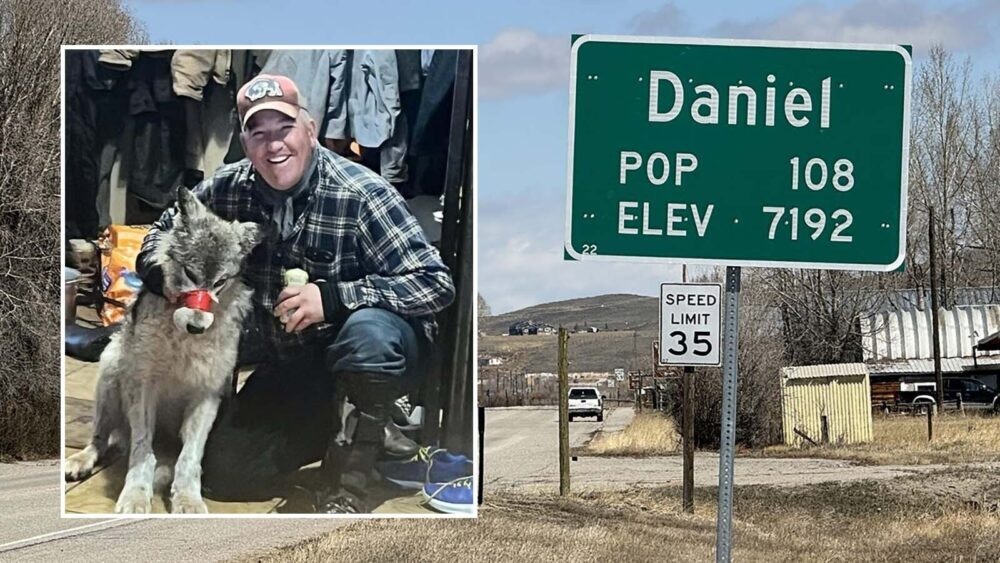A private investigator in Powell, Wyoming, is accusing two Park County prosecutors of perjury stemming from an error on a bond agreement.
But both prosecutors told Cowboy State Daily the claim is unfounded and defamatory, and the investigator is basing his claim on typical boiler-plate language in legal documents.
Matthew Smith, of Paladin Investigations in Powell, makes the claim in a letter dated Sept. 7 to the governors of Wyoming and Montana, the attorneys general of both states, two county sheriffs and the Wyoming Supreme Court justices, among other authorities.
“It is my opinion based on my investigation that Mr. Brian (sic) A. Skoric and Mr. Jack R. Hatfield II did in-fact conspire for Mr. Brian A. Skoric to knowingly commit perjury,” reads Smith’s letter.
He also claims that Deputy County Attorney Jack Hatfield II and Park County Attorney Bryan Skoric conspired to label a criminal defendant as a fugitive when they knew he had permission to be in Montana during his prosecution.
Smith is considering making a citizen's arrest on both prosecutors, he wrote.
Smith’s allegations are “completely false” and applicable court records expose them as such, Hatfield told Cowboy State Daily on Monday, speaking in his personal capacity.
Hatfield also said he has filed a stalking order of protection against Smith and is about to launch a $2.5 million defamation lawsuit.
Whoops
Smith had another notice on his website as of Monday, accusing Skoric and Hatfield of tapping his company’s internet.
Once again, the claim was outlined in a letter notifying the authorities.
But that was wrong, Smith later admitted, and the investigator posted a correction notice.
“There has been an error made in the previous letter regarding a tap on our internet,” reads a Monday letter by Smith. The agency had found a device named “Paladin Bail Bonds” on its network and was double-checking the trace.
“If it is found that this is (sic) claim of tap is all in error I will have no problem apologizing to Mr. Brian (sic) A. Skoric and Mr. Jack R. Hatfield,” concludes the letter.
But as of publication time Tuesday, both the internet-tapping allegations and its correction were scrubbed from the web page.
Because, Alleged Burglar
The documents attached with the letter remaining on the Paladin website track the criminal case of Jerimiah Swanson, a Billings, Montana, man accused of breaking into his mother’s Cody home and stealing cash and pistols last October.
Police arrested Swanson in November after he allegedly broke into the home a second time, covered one of its cameras with a blanket and fled the scene in a red minivan with a woman who was in possession of marijuana, according to an evidentiary affidavit in the case.
Swanson’s trial is set for next month.
A Scrivener’s Error
But Smith’s dispute is not over Swanson’s charges. It’s over his bond terms.
The Cody Circuit Court set Swanson’s bond at $5,000 cash or surety and ordered him not to violate any laws. He was forbidden from leaving Wyoming or Montana, his state of residence, without permission.
At Swanson’s arraignment, Park County District Court Judge William Simpson acknowledged without disapproval that Swanson was calling in from Billings, according to a court transcript attached to Smith’s letter.
But when Swanson’s case had moved from the lower-level circuit court into Simpson’s felony-level district court, his bond appeared to change: Simpson checked a box saying that Swanson could not leave Wyoming.
A Fresh Crime
Meanwhile, Swanson was arrested Feb. 16 in Billings while out of jail on his bond for a domestic violence misdemeanor.
He pleaded guilty March 8, according to Smith’s documents. That same day, the Yellowstone County Attorney filed a fugitive from justice complaint seeking Swanson’s extradition to Wyoming so that Swanson could answer for his bond violation.
Hatfield, the district court judge and others met March 9 in a video conference to discuss their next steps.
Swanson’s bonds agent disputed the new bond terms specifying that Swanson could only be in Wyoming.
But that was a “scrivener’s error,” or a mistake in filling out the paperwork, Hatfield told the judge.
“At the time this Court set bond conditions, I believe all parties knew that Mr. Swanson was in Montana,” said Hatfield. “I think it’s just an inaccurate block check on here.”
The Fugitive
Hatfield still considered Swanson to be a fugitive for living outside his bond terms and wanted him back in Wyoming to answer for the violation, the transcript indicates.
It wasn’t that Swanson had fled without permission, said Hatfield: It was that he had committed a crime when he promised he wouldn’t.
“The State has not alleged that by being in Montana he’s violated bond, but rather that by committing new crimes in Montana he has violated bond,” said Hatfield.
Don’t Make Me Go
Swanson sat in jail while authorities scrambled to extradite him, according to the documents.
He already had signed a Dec. 13 extradition waiver in Wyoming letting authorities send him across state lines to be prosecuted.
But the court in Montana wanted him to sign another extradition waiver, the documents indicate.
Swanson refused to sign another waiver.
Hatfield told Cowboy State Daily on Monday that it’s common for the Montana judiciary to demand its own extradition waivers.
“Montana, frequently, even when we present a written waiver of extradition, if the individual in front of the justice court there won’t sign (theirs), Montana refuses to accept (ours),” said Hatfield. “I can’t say I necessarily disagree with them. If they have a pre-signed waiver and the individual is standing in front of them, it seems it’s a repudiation of the waiver if they refuse to sign.”
So Skoric applied for a governor’s warrant — a request from Wyoming Gov. Mark Gordon to Montana Gov. Greg Gianforte asking Montana to deport Swanson back to Wyoming.
‘Fled’
Skoric’s March 15 application for a governor’s warrant said that Swanson “fled from the State of Wyoming” and was now refusing to be extradited back to the state to face the case against him.
Gov. Mark Gordon on March 30 granted Skoric’s request, signing a governor’s warrant asking Gianforte to give Swanson over to the Park County Sheriff.
Hatfield told Cowboy State Daily that governor’s warrant applications consist of stock language that the attorney general’s office requires. He characterized the phrase “fled from the State of Wyoming” as boiler-plate language encapsulating any bond violation.
Skoric made the same characterization. He also said Smith’s claims are “defamatory allegations” and would “be dealt with accordingly.”
Judge Says No
Swanson cried foul, claiming there were no grounds for the governor’s warrant because he’d already signed an extradition waiver in Wyoming, and because he had permission to be in Montana under his bond.
He applied for a pre-trial writ of habeas corpus, claiming authorities were holding him illegally.
The judge denied that petition.
“Swanson argues that he is being illegally detained,” wrote Yellowstone County District Court Judge Donald L. Harris in the July 11 order. “Swanson contends that the Montana warrant was based on inaccurate information … (because it) alleges that Swanson fled from Wyoming and is a fugitive from justice.”
Swanson hadn’t fled Wyoming, the defendant argued.
Still, the judge denied Swanson’s petition and noted that – according to the bond agreement – Swanson wasn’t allowed to leave Wyoming.
Alleged Perjury
Smith wrote in his letter that Hatfield and Skoric must have deceived the Montana judge into thinking Swanson was on the run so that the judge unjustly denied Swanson’s petition.
“Mr. Brian (sic) A. Skoric and Mr. Jack R. Hatfield II were in fact duty-bound and oath-bound to inform the (court) that Condition No. 5 was indeed a ‘scrivener’s error’ as stated by Mr. Jack R. Hatfield II in the status hearing,” wrote Smith.
Smith claims the two prosecutors kept this information from the judge intentionally.
Full Faith And Credit
Hatfield cast this as nonsense.
“We didn’t even know there was a habeas corpus hearing or anything,” said Hatfield. “Montana never asked me anything, and I don’t think Montana ever asked our office anything.”
He said that even if the judge had known about the scrivener’s error, it would not have changed the outcome of his denying Swanson’s petition.
A state receiving a governor’s warrant has two main duties: to ensure the warrant is in the proper form and to confirm that the individual being sought is the same person they have, said Hatfield.
He continued, saying the constitutional principle of full faith and credit between the states prevents the state receiving the warrant from scrutinizing the requesting state’s grounds for prosecution.
“Our judges will frequently tell defendants – when they start trying to argue the validity of the case in the other state – our judges will tell them, ‘That’s not what we’re dealing with today. You have to address that in that state. We’re just addressing the warrant,’” said Hatfield.
Clair McFarland can be reached at clair@cowboystatedaily.com.





